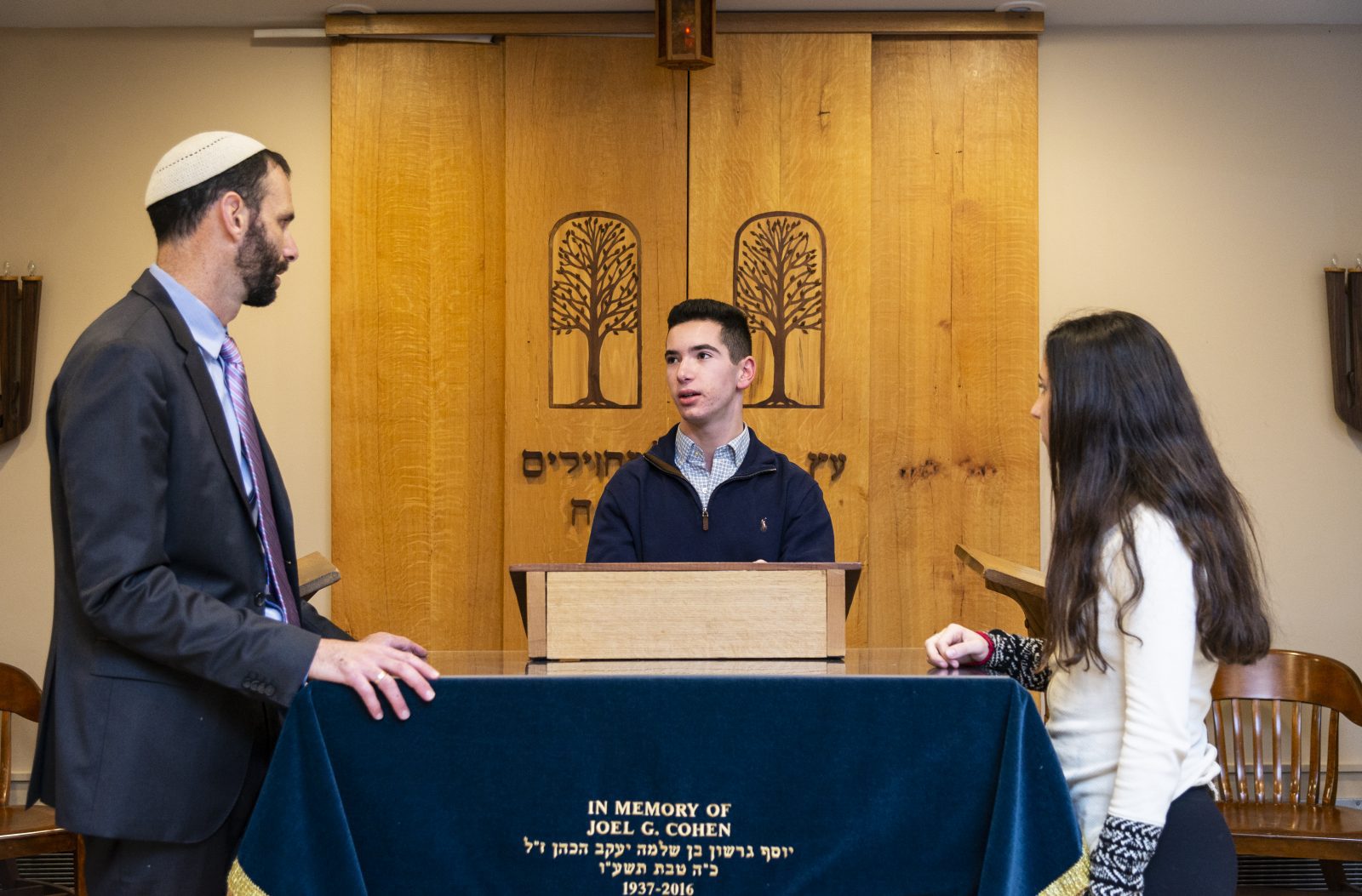MARBLEHEAD — Daniel Kasten and Lily Gregory are excited to go to college next year but they are preparing to confront an ugly reality infesting campuses: anti-Semitism.
Kasten, a St. John’s Prep senior, and Gregory, who attends Marblehead High School, participated in a Nov. 1 role-playing exercise with other Jewish high school students focused on scenarios mirroring anti-Semitic incidents at colleges. In one scenario, a professor declines to write a study abroad recommendation for a student after claiming allegiance to an academic movement boycotting Israel.

In another scenario, students practice responses to the discovery of a swastika scrawled on a dormitory room whiteboard.
“These are all real scenarios that have occurred,” Kasten said.
Anti-Semitism is on the rise, according to the Anti-Defamation League (ADL). The organization logged incidents including one at New York University where more than 50 groups pledged to not co-sponsor any event with the school’s two pro-Israel groups.
At Towson University outside of Baltimore, according to the ADL, two students punched two members of the college’s Alpha Epsilon Pi, a traditionally Jewish fraternity, in their faces and yelled ethnic slurs.
Kasten and Gregory said they have not experienced anti-Semitism but they know friends, family members and fellow students who have, including Kasten’s younger brother.
“It touched my heart to have my little brother affected by it,” he said.
They attended the Nov. 1 training session at Congregation Shirat Hayam in Marblehead with a dozen other students. The session was the third sponsored by Campus Anti-Semitism Task Force of the North Shore.
“To hear people only a couple of years older than me speak about this really hit home,” Gregory said.
Shirat Hayam’s Rabbi Michael Ragozin said the task force grew out of concerns he shared about anti-Semitism on college campuses. Held six days after a gunman shot to death 11 people worshipping at a synagogue in Pittsburgh, the training zeroed in on immediate responses to anti-Semitism.

In response to the swastika drawn on the whiteboard, students learned to reach out to Hillel, a Jewish organization active on many campuses, and draw in friends and fellow students to make other students and faculty aware of an anti-Semitic act.
Awareness of an anti-Semitic incident, said Ragozin, must translate quickly into educating people about anti-Semitism and launching efforts to eliminate it. Gregory said the work starts with pointing out how and why seemingly casual remarks or jokes are offensive and rooted in hatred.
Kasten said the Prep’s Jewish Student Union brought anti-Semitism into focus when Union members invited Ragozin to speak.
“It really opened people’s eyes,” he said.
Ragozin said confronting anti-Semitic remarks and turning them into educational opportunities is the way to thwart anti-Semitism before it can grow into firmly-held beliefs fueled by white supremacist hate speech and anti-Israel perspectives.
“While a lot of Jewish students are not targeted, those who experience or witness anti-Semitism at college tend to not say anything and don’t know how to respond or whether to even report an incident, leaving them feeling more isolated and vulnerable,” Rabbi Ragozin said. “Unfortunately, we need to better prepare them — that it can happen even at campuses with a strong Jewish population like NYU and UCLA.”

